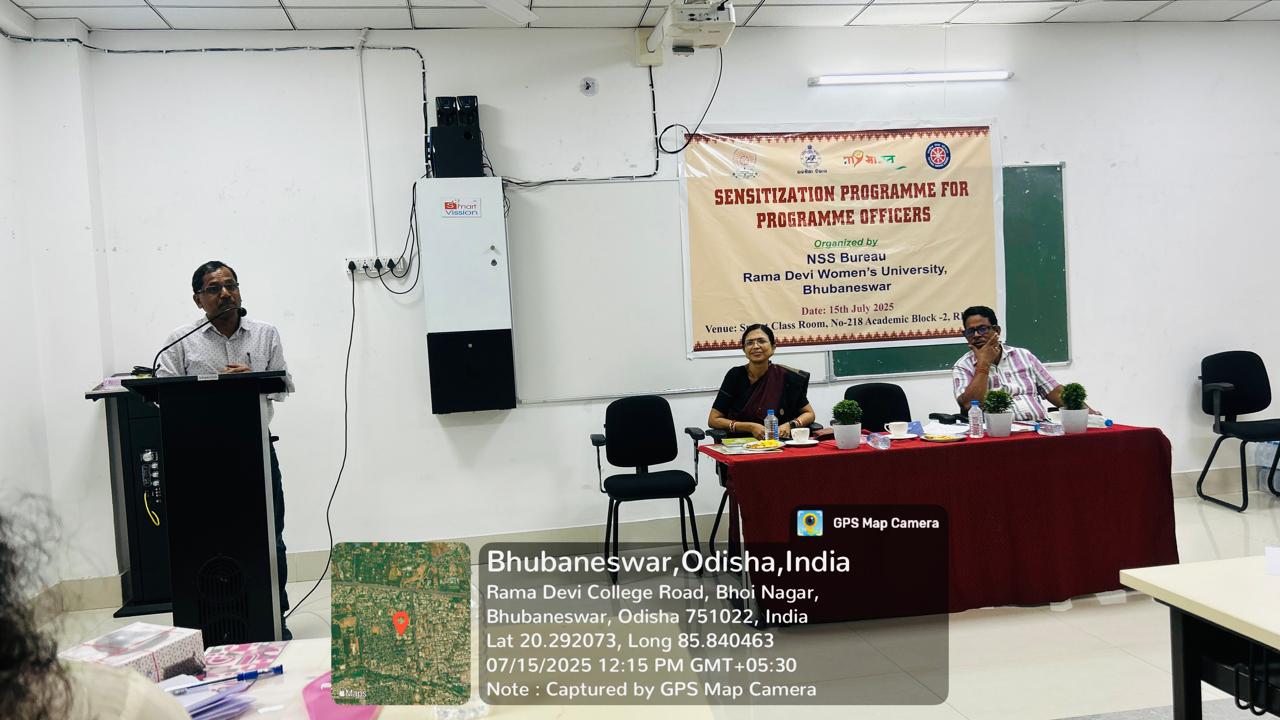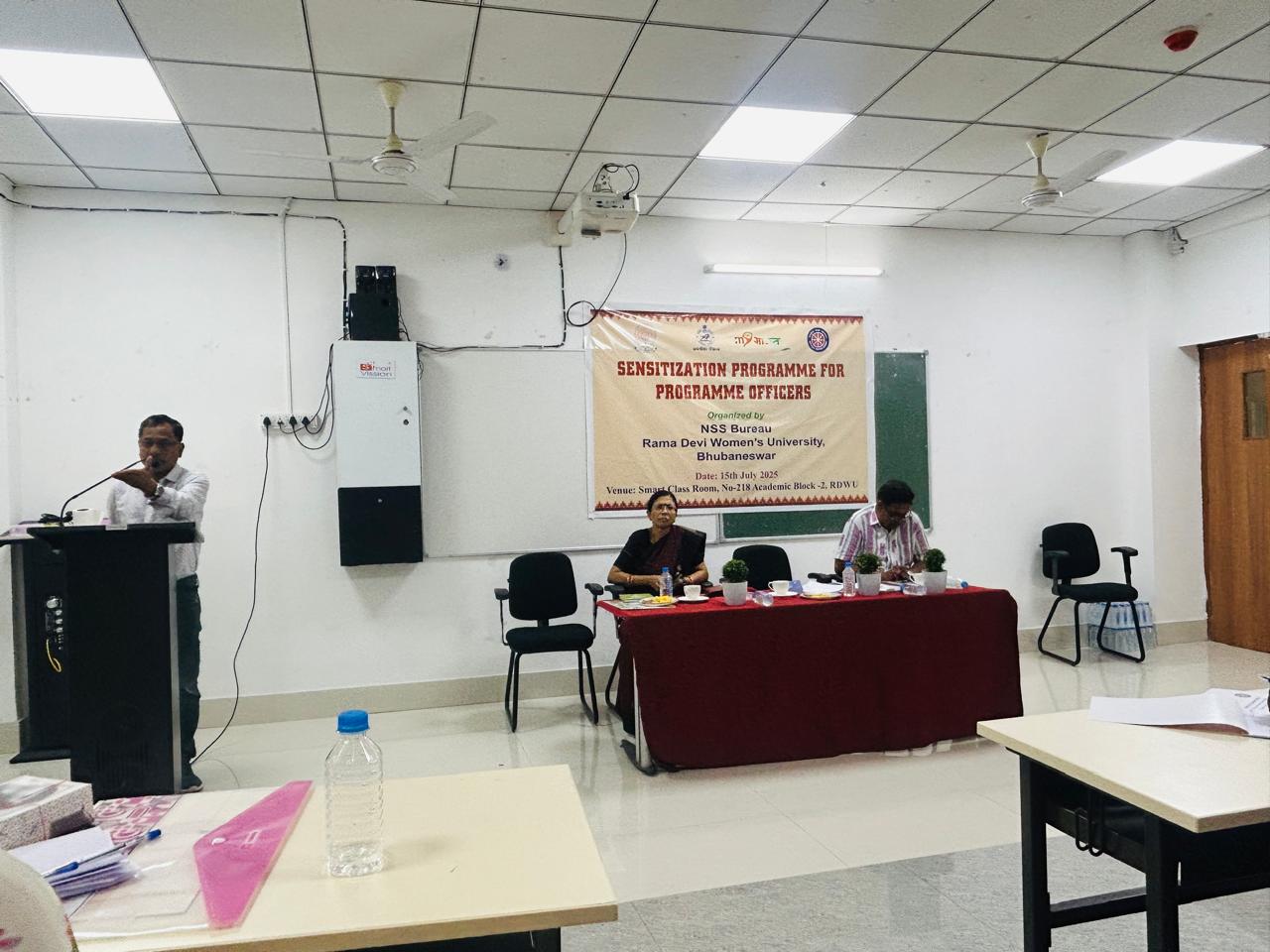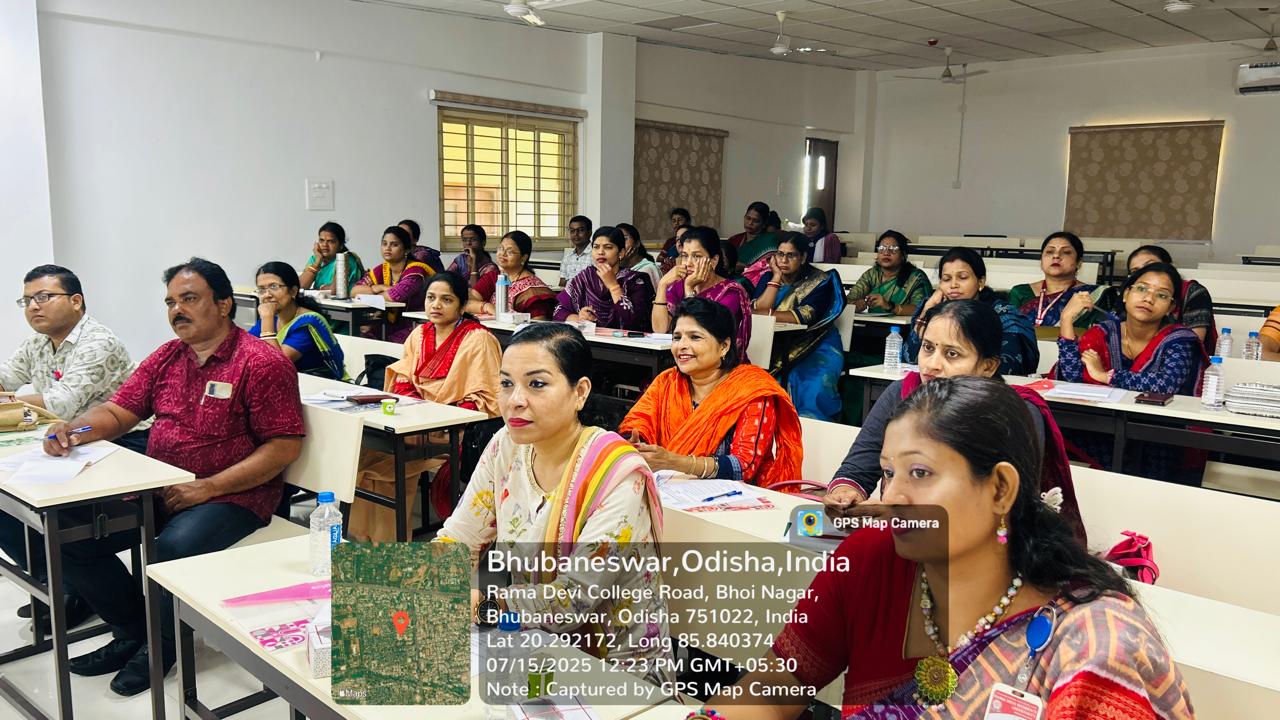The programme commenced with the traditional lighting of the lamp and floral greetings. Prof. A.
Mohanty, PC, RD Women’s University, delivered the welcome address and outlined the theme of
the session. Chief Guest Prof. Chandi Charan Rath (Vice-Chancellor I/C) and Guest of Honour Dr.
Ramesh Chandra Behera (SNO, cum Deputy Secretary to Govt.) emphasized the vital role NSS
plays in nation-building through youth engagement. Dr. Geetanjali Naik gave the vote of thanks.
Session by Dr. Ramesh Chandra Behera – Key Takeaways:
1. Campus Presence of PO (Programme Officer): A PO must actively establish their presence in the
campus by engaging regularly with NSS volunteers and activities.
2. Team Building: Emphasis was laid on developing a sense of team spirit among
volunteers-balancing both old and new members.
3. Chairing Responsibilities: The Programme Officer must take the lead, roll call, and monitor the
discipline and flow of events.
4. Formation of Advisory Committee: Institutions should constitute an NSS Advisory Committee for
planning and execution of programmes effectively.
5. Community Involvement: Every activity must be rooted in community service and social
Page 1
Report on Sensitisation Programme for NSS Programme Officers
awareness.
Session by Sri Nirad Baran Khuntia – Focus on NSS Activities:
Sri Khuntia elaborated on the operational side of NSS, stressing the procedural and organizational
aspects:
– Volunteer Enrolment: Clear guidelines were shared on enrolment of students into NSS units, with
focus on inclusivity and motivation.
– Orientation Sessions: Importance of early orientation to make new volunteers understand the NSS
motto, goals, and responsibilities.
– Activity Planning: A detailed calendar should be designed at the unit level, combining national
days, campus drives, and outreach programmes.
– Record Maintenance: Proper documentation of enrolment, attendance, activity reports, and
volunteer hours is essential.
– Community Outreach Projects: Encouragement to initiate sustainable and localised service
projects-health camps, cleanliness drives, awareness rallies, etc.
Conclusion:
The sensitisation programme was informative and motivational, reaffirming the crucial role of NSS in
shaping socially responsible citizens. It offered fresh perspectives on managing NSS units efficiently
and planning impactful community-based initiatives.
Follow Us:




